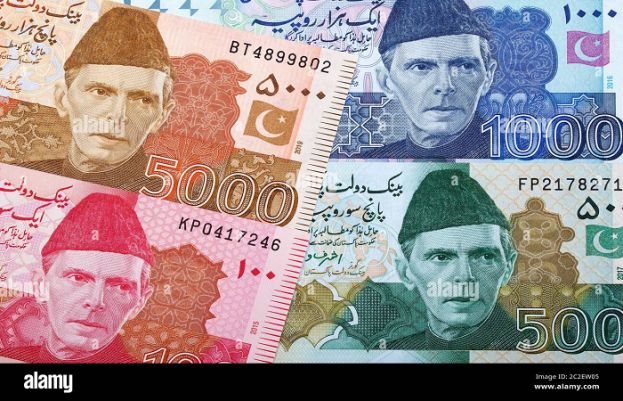
The development sends positive signals, as it supports the stabilisation of foreign exchange reserves and the rupee against the US dollar.
Pakistan's central bank, the SBP, reported the current account deficit data before financial markets resumed trade on Wednesday.
Accordingly, the rupee managed to recover to around Rs215 against the US dollar in the early hours of the day's trading.
It, however, lost support and slumped to over Rs219 at around 11am. The rupee had closed at Rs217.66 on Tuesday.
The SBP said on its official Twitter handle that “the current account deficit shrank to $1.2 billion in July from $2.2 billion in June, largely reflecting a sharp decline in energy imports and a continued moderation in other imports”.
“The narrower deficit is the result of wide-ranging measures taken in recent months to moderate growth and contain imports, including tight monetary policy, fiscal consolidation and some temporary administrative measures,” it added.
To recall, the government had imposed a ban on non-essential and luxury goods including expensive cars and mobile phones. The government only lifted the ban last week.
Additionally, the central bank increased its key policy rate by a cumulative 800 basis points in the past 11 months (September 2021 to July 2022). The SBP is maintaining the key interest rate unchanged since July at 15 per cent for the next seven weeks – the highest in over two decades.
The policies have achieved the set target of slowing down economic activity in the country. The sales of cars, petroleum products, electricity, cement, and fertilizers have dropped significantly over the past few months.
The economy had overheated amid the second highest current account deficit of $17.4 billion recorded in the previous fiscal year that ended on June 30, and the weekly inflation had hit a record high of over 42% as the week ended on Friday and the benchmark CPI inflation spiked to a 14-year high at around 25% in July.
from latest-news - SUCH TV https://ift.tt/CFImNBl

0 Comments